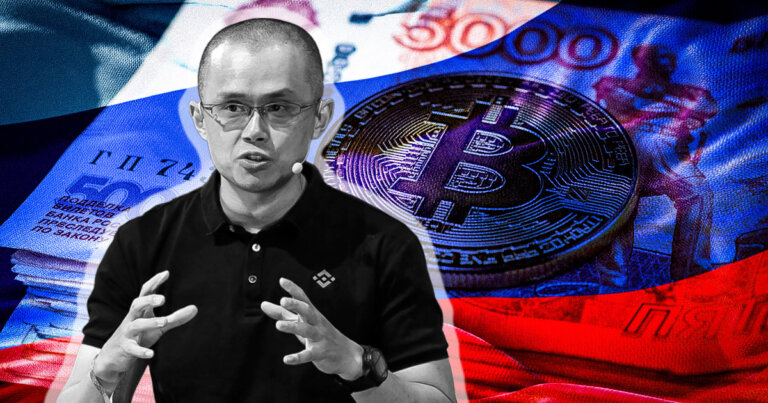 CZ says Binance Russia new owner CommEX will not serve EU, US customers
CZ says Binance Russia new owner CommEX will not serve EU, US customers CZ says Binance Russia new owner CommEX will not serve EU, US customers
Binance CEO Changpeng Zhao 'CZ' denied ownership of the new crypto platform.

Cover art/illustration via CryptoSlate. Image includes combined content which may include AI-generated content.
CommEX will not service customers from the European Union or the United States, according to Binance CEO Changpeng ‘CZ’ Zhao.
In a Sept. 28 post on X (formerly Twitter), CZ disclosed that the lesser-known cryptocurrency platform would refrain from serving customers in these two regions because of a contractual condition tied to the sale of Binance’s Russian business to it.
Per CZ, CommEX will implement internet protocol (IP) and Know Your Customer blocks to ensure they do not serve users from these places.
CZ’s revelation is not entirely surprising considering the regulatory issues Binance has faced in the U.S. and Europe. In the U.S., several financial regulators, including the Securities and Exchange Commission (SEC) and the Commodity Futures Trading Commission (CFTC), have filed legal actions against the exchange over its violations of federal laws.
On the other hand, Binance has had to exit several European countries, including the U.K., Germany, and others, due to its inability to gain appropriate regulatory approval from these countries.
On Sept. 27, Binance announced the sale of its Russian operations to CommEX, citing regulatory challenges. This move sparked considerable interest within the crypto community, given CommEX’s status as a newly established platform with limited information available about its team.
Denies ownership
Meanwhile, CZ refuted any ownership ties to CommEX, clarifying that neither he nor Binance holds any stake in this crypto firm.
According to him, the sales agreement is distinct from those completed by big firms because it does not contain a buyback option. He said:
“I am not their ultimate beneficial owner, nor do I own any shares there. The deal does not have any buy back options.”
CommEX’s similar design to Binance
CZ also attempted to downplay concerns about Binance and CommEX’s similar designs and application programming interfaces (API).
He explained that the similarity was to ensure that users continue to enjoy a good user experience, adding that several ex-members of Binance’s cryptography and information security team might have joined the new platform.













































































































